‘Even if war stops, you cannot retrieve your dead children’
In Bucha, near Kyiv, Ukrainians tell Bel Trew their lives will never be the same, even after the conflict ends

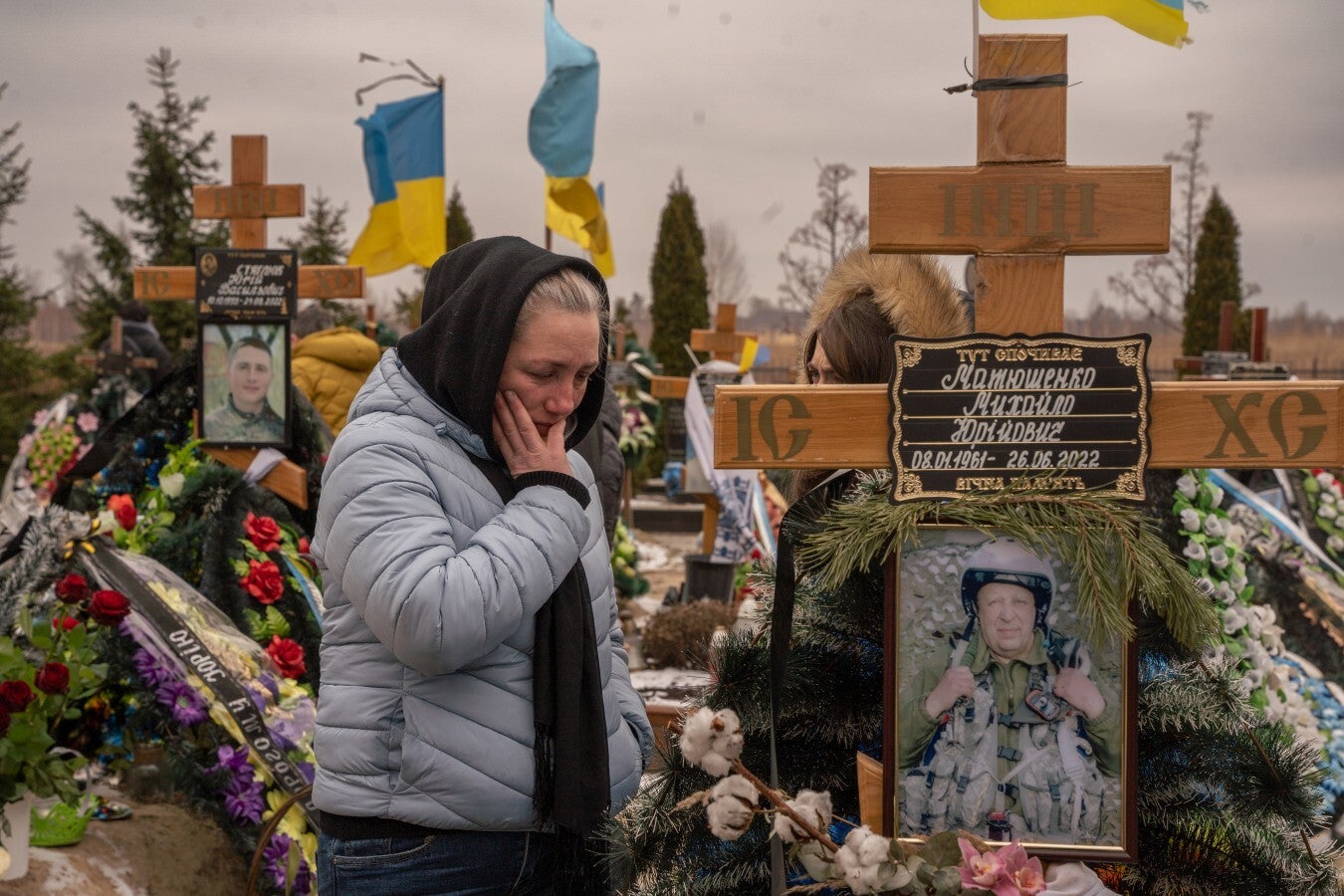
A portable cabin barely bigger than the bunk bed in it is all that Maria Vasilenko, 78, has left, a year after Russian soldiers marched into her town and destroyed her life.
Most of her family were blown up in a Russian airstrike in March which levelled her home in Borodyanka.
Before the war, the sleepy river-side town of 13,000 people had been an anonymous suburb west of Kyiv. But after Russian forces rolled into Ukraine, it became a frontline area and then was occupied for several weeks.
On 1 March – just a few days into President Vladimir Putin’s invasion – Maria had taken shelter in the building’s basement. Her daughter Alona, 41, a medic, remained above ground with her husband and other family members to tend to the wounded. The decision turned out to be a fatal mistake.
They were killed by the 500kg bomb which hit the building, and chewed up the ground.
“After the explosion the dust, the smoke, the devastation blocked out the sun turning a beautiful day into darkness,” Maria says quietly.
“I saw a lot of cars on fire, they burned like candles. When I walked out I thought: this is what hell looks like.”
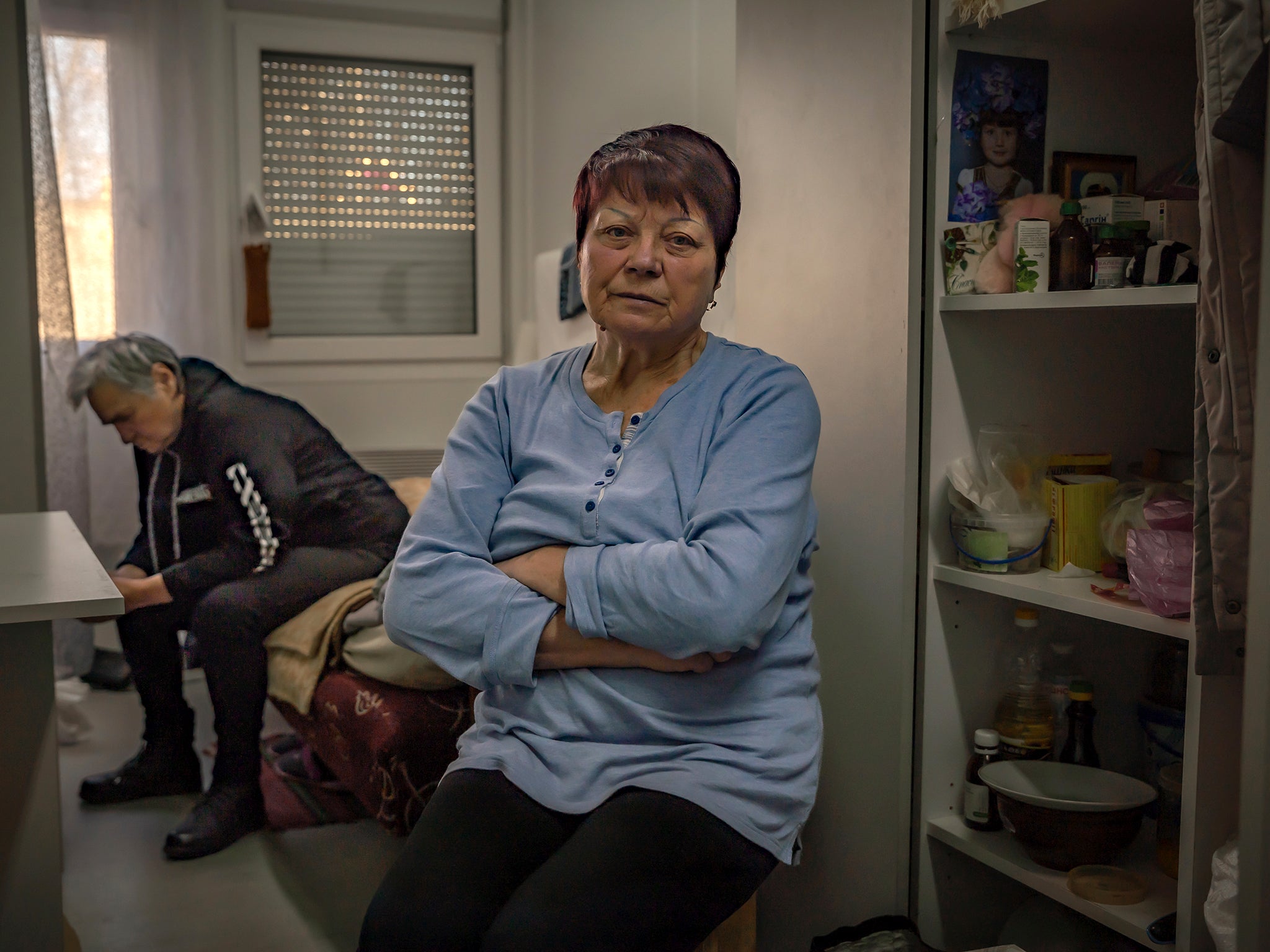
One year on, Maria is reduced to bunking with another elderly friend, also from Borodyanka, in one room. It is within a string of pre-fabricated houses provided by Poland that skirt a football pitch.
Her pension of 3500 hryvnia – or just under £80 – a month is not enough to pay the winter heating bills let alone rent. All of her belongings – entirely compiled of donations – can fit into a tiny cubby hole.
And so as the nation limps past the grim milestone of one year of Russia’s invasion on Friday, she mourned her losses from a little stool next to a bunk bed.
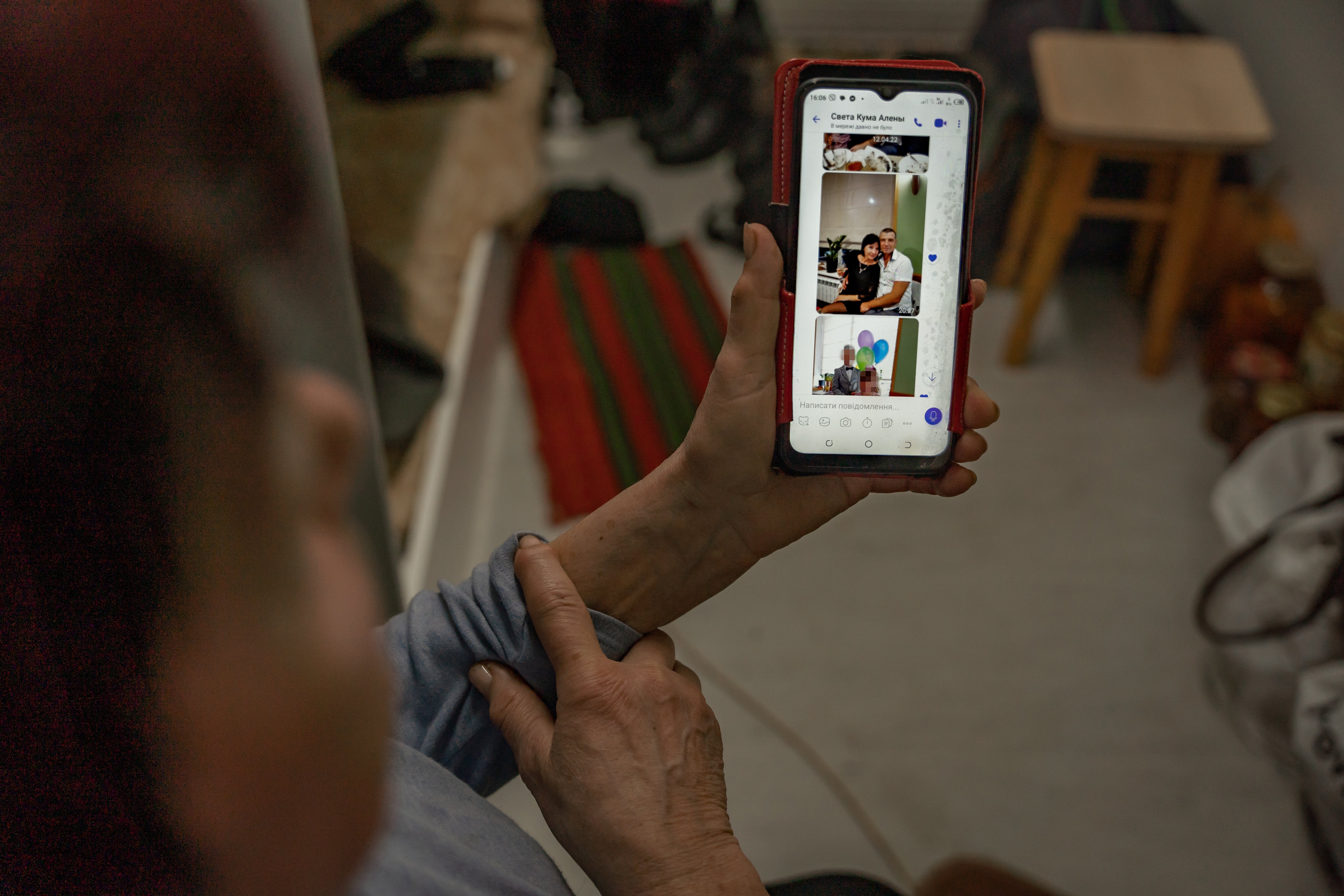
“How can I feel anything at all?” She asks, showing photos of her daughter and her husband, who left behind two children Nikita, 17 and Milena, 10, who are now orphaned refugees in Poland.
“We are hoping victory will be soon but even if it happens for me the pain will not stop.”
Across Ukraine on Friday emotional vigils were held to remember those who have been killed over a long and bloody year.
At dawn on 24 February Russian president Vladimir Putin launched the unthinkable: a full-scale invasion of neighbouring Ukraine.

He marched his phalanxes of troops and artillery towards Kyiv. Few thought Ukraine had a chance of standing – but the military fought back and even retook territory.
The toll has been devastating. As many as 100,000 civilians could have been killed in the onslaught, Yuriy Belousov, the country’s top war crimes prosecutor, told The Independent on the eve of the anniversary. That is a figure 10 times the United Nations official confirmed death toll of 8,006 which it acknowledges is a woefully low estimate.
Tens of thousands of citizens are also confirmed missing – many of them disappeared into occupied territory.
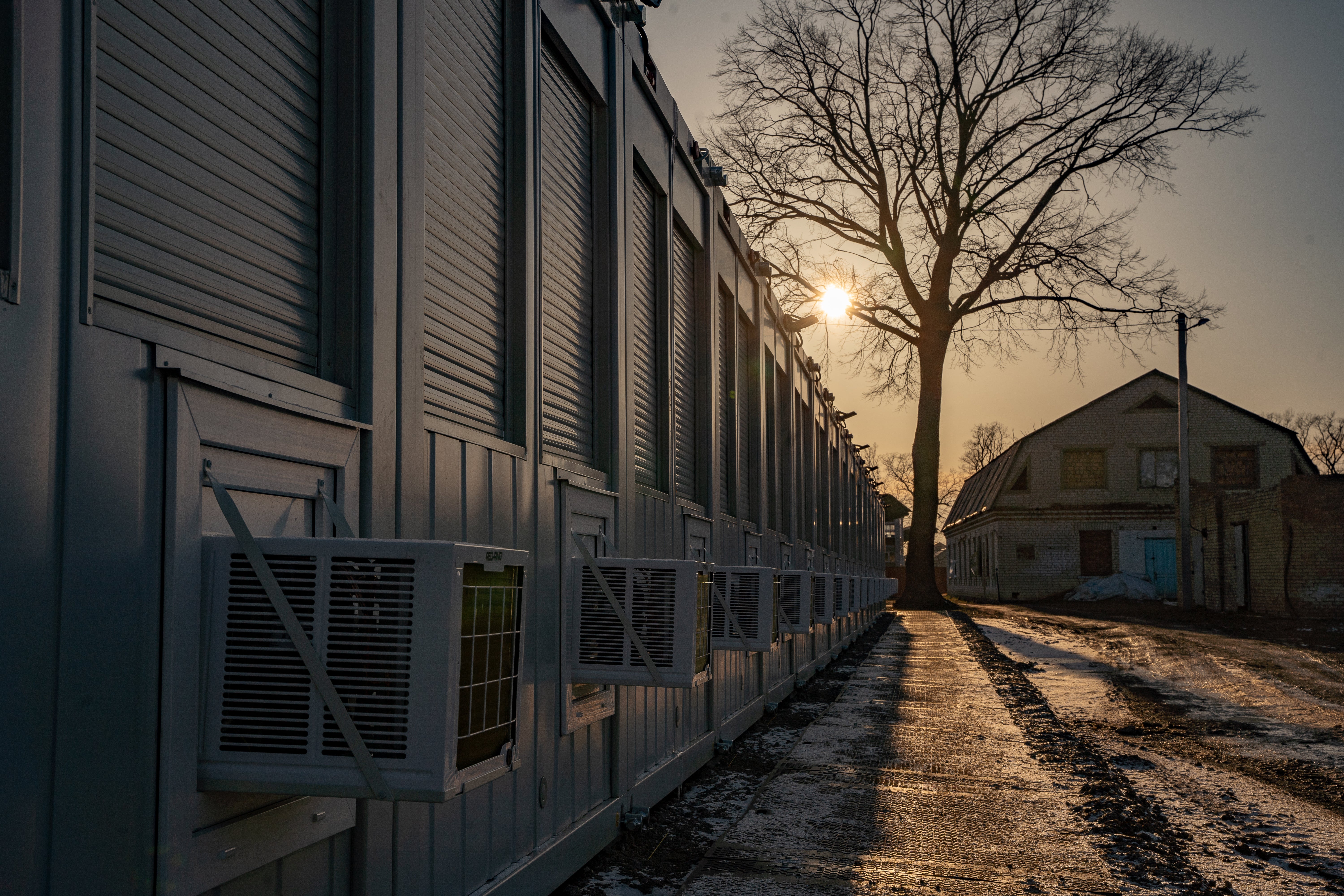
On Friday to mark the year, at a ceremony on Kyiv’s St Sophia Square, President Volodymyr Zelensky visibly struggled to fight back tears as he bestowed medals on soldiers and the mother of one killed, and sung the national anthem.
”We have become one family ,” he said in a televised address during which he vowed to pursue victory.
“Ukrainians have sheltered Ukrainians, opened their homes and hearts to those who were forced to flee the war.”
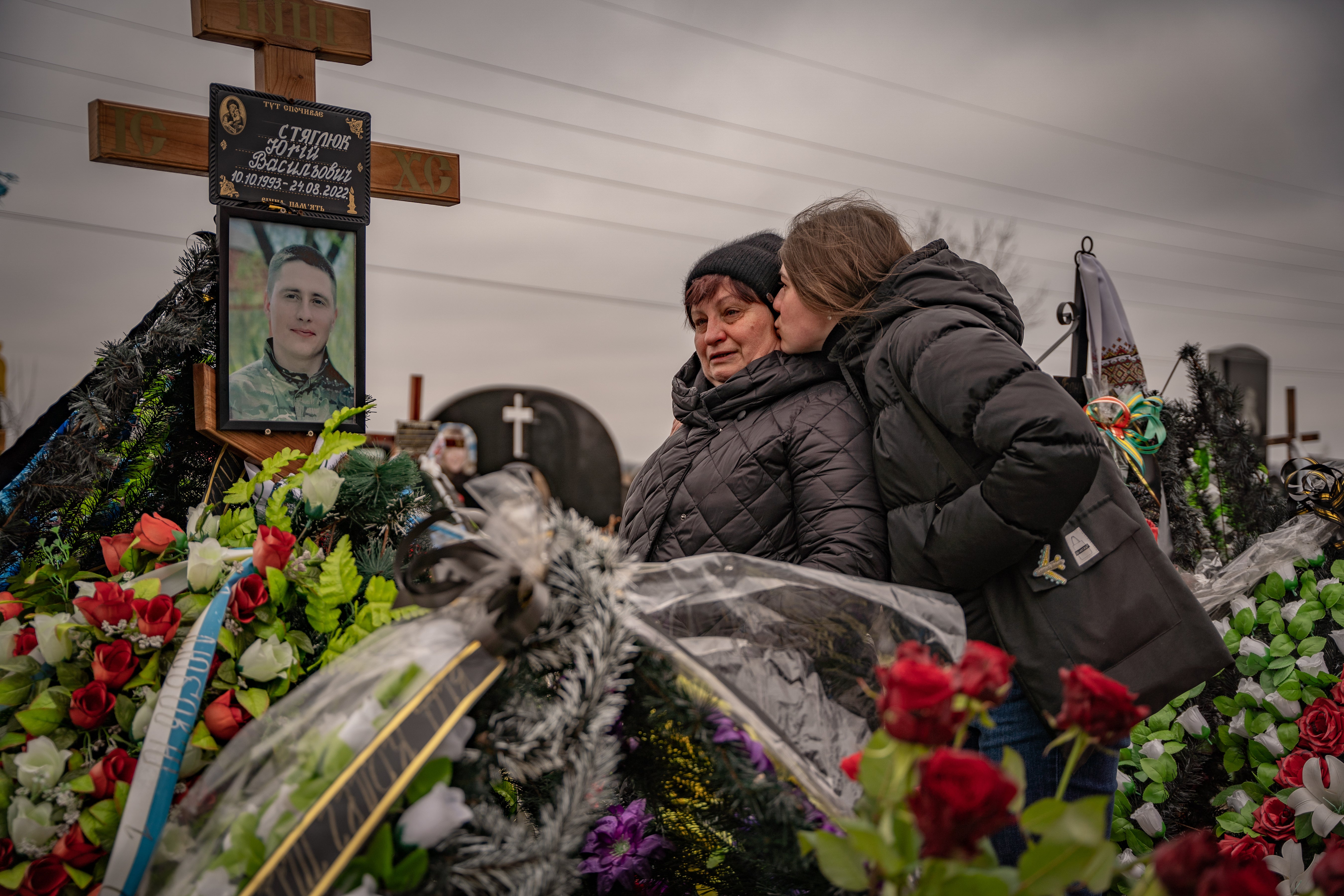
Support for the embattled country, meanwhile, ricocheted across the world on Friday with governments from Washington to London to Berlin vowing to stick by Ukraine for as long as it takes.
Multiple countries also announced multi-million pound military aid packages and fresh sanctions.
But at the memorials held across the country, families said even if the end of the war was declared today the losses will impact generations.
In Bucha, which neighbours Borodanka and also suffered a brutal month-long occupation by Russian forces, local residents gathered to lay wreaths at the graves of those killed in the war. Some of them are known and some of them are yet to be identified.

“How many people have died because of this war, how many more will die if it keeps going on?” asks Tatiana, 47, in tears by the grave of her son Olekksiy, 28, who was killed last month in Bakhmut, a tiny town which is now the epicentre of the fighting in eastern Ukraine.
“Even if the war stops, you cannot retrieve your dead children. You cannot recover from that.”
Father Andriy Halavin, 50, the orthodox priest at Bucha’s main church presided over the prayers. Under occupation he was forced to bury his murdered parishioners in a mass grave he dug by the church building, as it was too dangerous to make it to this cemetery.

“It was the hardest year in my life because I had to bury so many people and yet there are still so many missing people and unidentified bodies,” he told The Independent. “It will impact us for generations.”
This is echoed by Maria, who says she will live indefinitely in the cabin until someone can build a house for her. Seventy-eight, broken, penniless and alone, she has few other options.
“We are hoping there will be victory soon but for me the pain will not stop,” she says, pausing for tears.
“All I can hope for is that our children and grandchildren will see what war does to the world and they will be fundamentally opposite. War is a horror that should never happen.”
Join our commenting forum
Join thought-provoking conversations, follow other Independent readers and see their replies
Comments


Bookmark popover
Removed from bookmarks